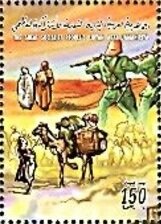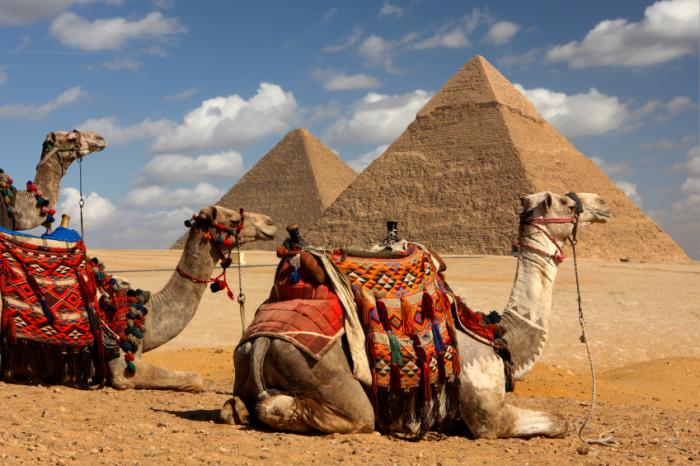Stamp: Deportation of Libyans to Italy (Libya 1998)
Deportation of Libyans to Italy (Libya 1998)
26 October (Libya ) within release Anniversary of Deportation of Libyans to Italy goes into circulation Stamp Deportation of Libyans to Italy face value 150 Libyan dirham
| Stamp Deportation of Libyans to Italy in catalogues | |
|---|---|
| Michel: | Mi: LY 2638 |
Stamp is square format.
Also in the issue Anniversary of Deportation of Libyans to Italy:
- Stamp - Deportation of Libyans to Italy face value 150;
- Stamp - Deportation of Libyans to Italy face value 150;
- Stamp - Deportation of Libyans to Italy face value 150;
- Stamp - Deportation of Libyans to Italy face value 150;
- Stamp - Deportation of Libyans to Italy face value 150;
- Mini Sheet - Deportation of Libyans to Italy face value 16*150;
- Stamp - Deportation of Libyans to Italy face value 150;
- Stamp - Deportation of Libyans to Italy face value 150;
- Stamp - Deportation of Libyans to Italy face value 150;
- Stamp - Deportation of Libyans to Italy face value 150;
- Stamp - Deportation of Libyans to Italy face value 150;
- Stamp - Deportation of Libyans to Italy face value 150;
- Stamp - Deportation of Libyans to Italy face value 150;
- Stamp - Deportation of Libyans to Italy face value 150;
- Stamp - Deportation of Libyans to Italy face value 150;
- Stamp - Deportation of Libyans to Italy face value 150;
- Stamp - Deportation of Libyans to Italy face value 150;
Stamp Deportation of Libyans to Italy it reflects the thematic directions:
A camel (from Latin: camelus and Greek: κάμηλος (kamēlos) from Ancient Semitic: gāmāl) is an even-toed ungulate in the genus Camelus that bears distinctive fatty deposits known as "humps" on its back. Camels have long been domesticated and, as livestock, they provide food (camel milk and meat) and textiles (fiber and felt from camel hair). Camels are working animals especially suited to their desert habitat and are a vital means of transport for passengers and cargo. There are three surviving species of camel. The one-humped dromedary makes up 94% of the world's camel population, and the two-humped Bactrian camel makes up 6%. The wild Bactrian camel is a separate species and is now critically endangered.
A military, also known collectively as an armed forces, are a heavily armed, highly organized force primarily intended for warfare. Militaries are typically authorized and maintained by a sovereign state, with their members identifiable by a distinct military uniform. They may consist of one or more military branches such as an army, navy, air force, space force, marines, or coast guard. The main task of a military is usually defined as defence of their state and its interests against external armed threats.
A people is a plurality of persons considered as a whole, as is the case with an ethnic group or nation. Collectively, for example, the contemporary Frisians and Danes are two related Germanic peoples, while various Middle Eastern ethnic groups are often linguistically categorized as Semitic peoples.



